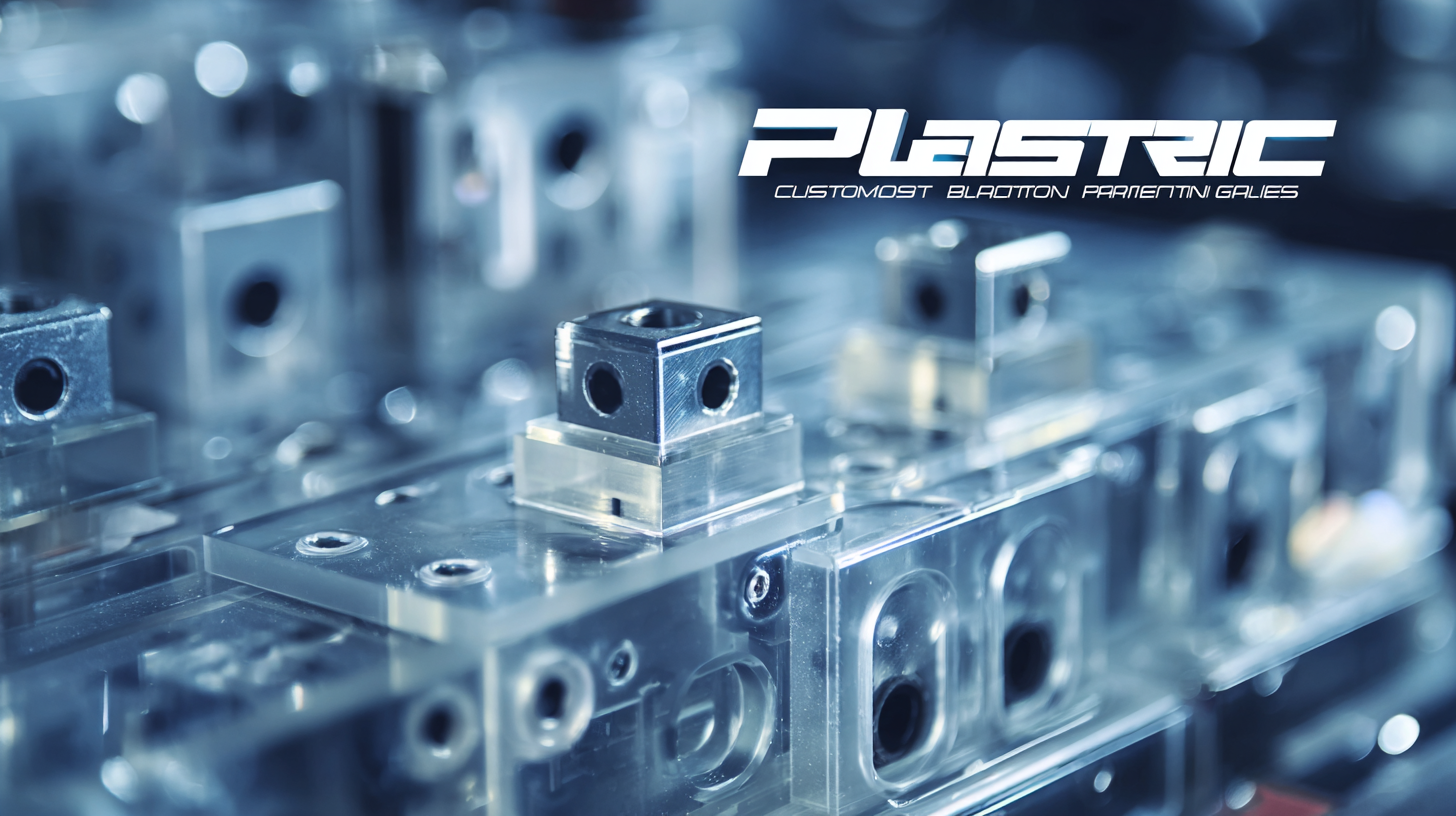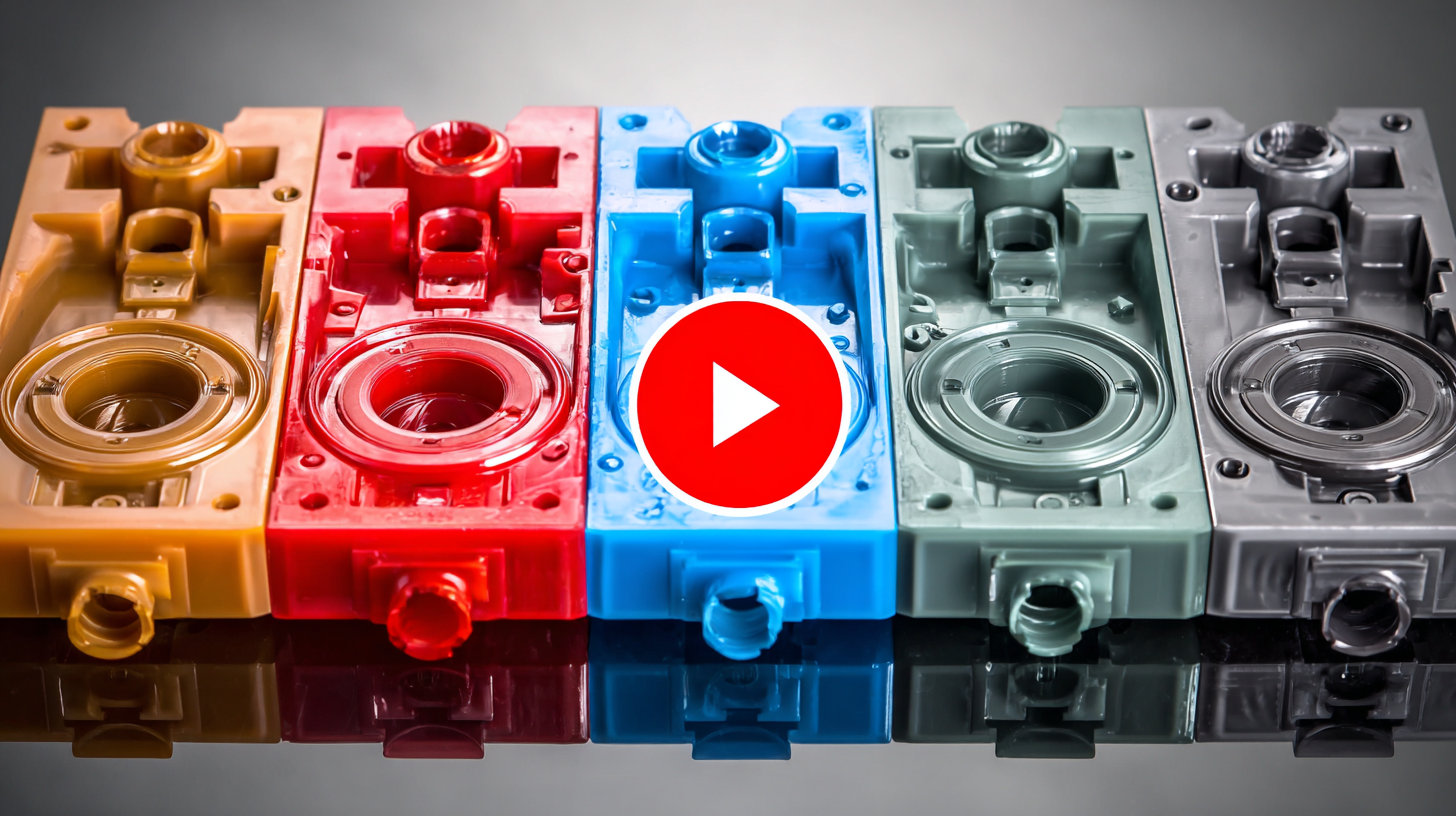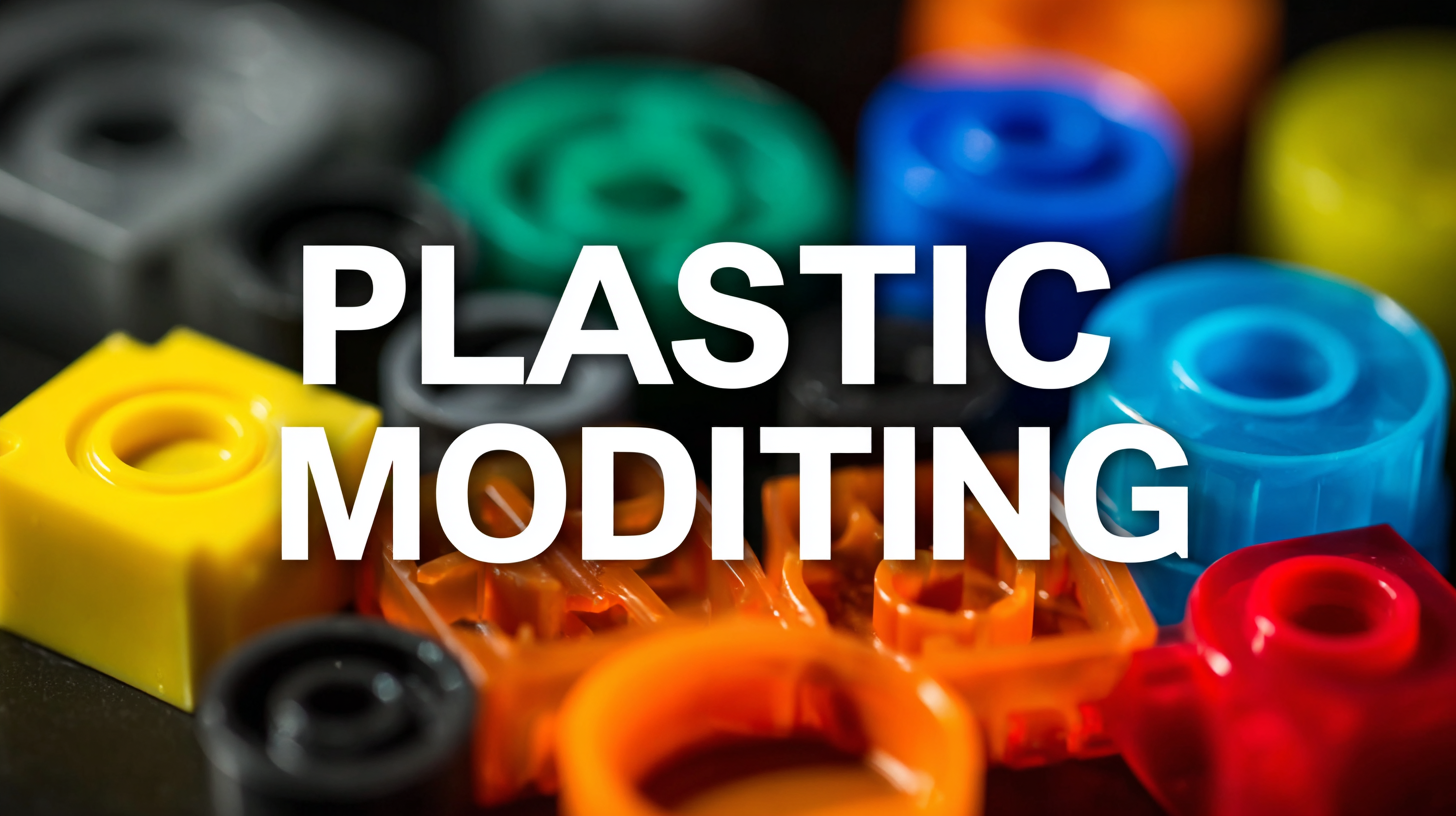In today's competitive manufacturing landscape, selecting the right partner for Custom Plastic Injection Molding is crucial for ensuring product quality and operational efficiency. According to a report by Grand View Research, the global injection molding market is anticipated to reach USD 380.3 billion by 2025, driven by the increasing demand for lightweight and durable materials across various industries. With this growth, businesses must navigate an often overwhelming array of potential partners, each claiming to deliver superior service and results. A strategic approach to choosing the best custom plastic injection molding partner involves evaluating their capabilities, technological advancements, and alignment with your specific business needs. This blog will outline top strategies to help you make an informed decision that enhances your production process and ultimately contributes to your company's success.

When choosing a custom plastic injection molding partner, understanding the key technical specifications is critical to ensuring your project's success. Start by evaluating the material types that the supplier works with; commonly used plastics such as ABS, polycarbonate, and polypropylene offer different properties that may align more closely with your product requirements. Consider additives and finishes that can enhance durability, flexibility, or UV resistance based on the end-use of your components.
Moreover, it's essential to assess the technical capabilities of the molding partner. This includes their machine technologies, such as the maximum clamping force, injection speed, and the capability for multi-cavity molds. A partner with advanced machinery can typically produce more intricate designs and provide better efficiency and quality control. Additionally, inquire about their design capabilities, which should include design for manufacturability (DFM) practices and expertise in 3D modeling. By focusing on these technical specifications, you can secure a partner who not only meets your immediate needs but also supports the long-term growth and innovation of your products.
When selecting a custom plastic injection molding partner, it's crucial to evaluate their experience and expertise. First, consider their industry experience. A partner with a proven track record in your specific industry can better understand your unique requirements and challenges. Look for companies that have successfully completed projects similar to yours, as this indicates familiarity with the processes and standards needed for quality results.
Tip: Ask for case studies or examples of previous work to gauge their capabilities. This will help you assess how their experience aligns with your project needs.
Another important factor is the technical expertise of their team. Evaluate the qualifications and skill sets of their engineers and technicians. A knowledgeable team can provide valuable insights during the design phase and can troubleshoot issues effectively during production.
Tip: Schedule a visit to their facility to meet the team and observe their operations firsthand. This interaction will give you a better understanding of their technical competencies and work culture.
When selecting a custom plastic injection molding partner, quality assurance processes play a crucial role in ensuring that your products meet industry standards and customer expectations. First, evaluate their quality control measures throughout the production cycle. This includes checking their inspection methods, personnel training, and adherence to specific industry certifications such as ISO 9001.

Tip: Always ask potential partners about their sampling methods, including First Article Inspection (FAI) and regular audits, to assess their commitment to quality from the outset.
Additionally, inquire about their ability to identify and mitigate defects early in the process. Effective quality assurance should involve not just final product testing but also continuous monitoring during production to prevent issues before they arise.
Tip: Look for a partner who employs advanced technologies, such as automated inspection systems or statistical process control, as these can significantly enhance their quality assurance capabilities.
When selecting a custom plastic injection molding partner, understanding their cost structures and pricing models is crucial for your business's financial health. Different partners may offer varying pricing strategies, such as fixed pricing, cost-plus pricing, or value-based pricing. Each model has its implications on your budget and profit margins, so it's essential to assess which aligns best with your project requirements.
**Tip:** Always request a transparent breakdown of costs. This should include material expenses, labor rates, overheads, and any additional fees that might arise during production. A clearer understanding of these factors can help prevent unforeseen costs later in the manufacturing process.
Another key consideration is the potential for economies of scale. As your order volume increases, some manufacturers may offer reduced pricing per unit. Discussing your long-term plans with potential partners can unveil opportunities for cost savings that you might not have initially considered.
**Tip:** Evaluate the flexibility of your partner in adapting to your changing business needs. A responsive supplier who can adjust pricing models based on order volume and market fluctuations can be invaluable in maintaining your competitive edge.
| Criteria | Description | Typical Cost Structure | Pricing Models |
|---|---|---|---|
| Material Selection | Evaluate the types of plastics used based on product requirements. | Cost varies by material type, ranging from $1.50 to $5.00 per kg. | Fixed price per kg of material. |
| Production Volume | Determine the scale of production needed for your business. | Cost per unit decreases with larger production volumes. | Tiered pricing based on volume. |
| Tooling Costs | Initial investment in molds and tools necessary for production. | Typical range from $5,000 to $100,000 per mold. | One-time upfront payment or amortized costs. |
| Lead Time | Time from order placement to first delivery of products. | Typical lead times range from 4 to 12 weeks. | Variable based on complexity and current workload. |
| Quality Assurance | Assess the partner's quality control processes and certifications. | Cost of QA processes is often included in unit pricing. | Cost per inspection or quality program fees. |
 When selecting a custom plastic injection molding partner, effective communication and robust support channels are paramount. According to a report by Grand View Research, the global plastic injection molding market is projected to reach $456.6 billion by 2025, highlighting the competition among providers. Businesses that prioritize communication with their partners can streamline product development processes, minimize errors, and ensure timely delivery. Establishing clear lines of communication not only facilitates the exchange of ideas but also fosters a collaborative environment where issues can be addressed promptly.
When selecting a custom plastic injection molding partner, effective communication and robust support channels are paramount. According to a report by Grand View Research, the global plastic injection molding market is projected to reach $456.6 billion by 2025, highlighting the competition among providers. Businesses that prioritize communication with their partners can streamline product development processes, minimize errors, and ensure timely delivery. Establishing clear lines of communication not only facilitates the exchange of ideas but also fosters a collaborative environment where issues can be addressed promptly.
Moreover, support channels significantly impact your ability to adapt to market changes and consumer demands. A study by Research and Markets indicates that agile manufacturing strategies, which often rely on responsive communication systems, are essential for businesses aiming to enhance their competitive edge. Evaluating a partner’s support infrastructure—such as technical assistance, customer service response times, and after-sales support—can provide insights into their commitment to your success. Choose a partner that offers comprehensive communication tools, including real-time project tracking and dedicated account management, to ensure a productive and responsive partnership that aligns with your business needs.
